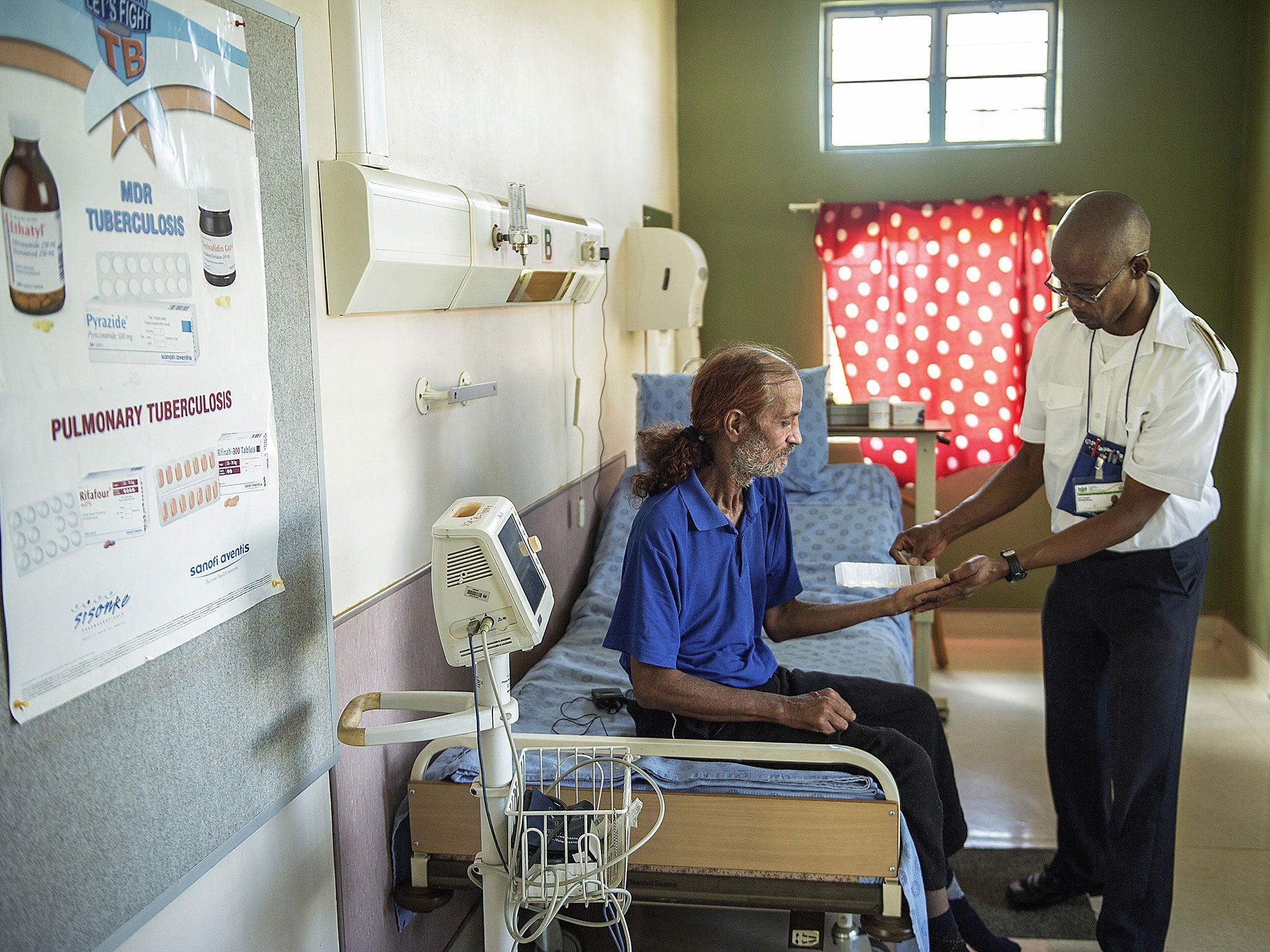Tuberculosis is the most infectious disease in the world - and it’s curable
A new report from Doctors Without Borders laments the small number of people who have access to the most effective, expensive drugs

Despite the recent hype from health officials about the Zika virus, the most infectious and deadly disease in the world is not what you might expect - and it’s curable.
Tuberculosis (TB), which is often associated with the Victorian era and is now virtually extinct in the UK, still ravages countries around the world like India, South Africa and Russia.
TB kills 1.5 million people per year, and has been around for hundreds of years, according to a new report from Doctors Without Borders, or its French acronym MSF.
That compares to AIDS/HIV, which has killed 39 million people since the epidemic began in the late 1970s, according to separate figures from the World Health Organization.
“TB is curable, yet it is now the infectious disease that kills the most people in the world,” said Dr Grania Brigden, TB adviser for Doctors Without Border’s Access Campaign. “We desperately need treatment that is easier for people to tolerate, that cures more people, and that is more available and affordable, otherwise it’s just deadly business as usual.”
The price for a commonly prescribed treatment of TB costs between $1,800 and $4,600 per person per course of treatment, but is difficult for patients to tolerate and can suppress their appetite and cause nausea and vomiting.
Two relatively new drugs, delamanid and bedaquiline, used in conjunction with repurposed drugs not specifically for TB, can “dramatically increase efficacy” and with less side effects, according to MSF, the French acronym for Doctors Without Borders.
However these drugs are costly and largely inaccessible.
Drug company Otsuka charges $1,700 per person per course of treatment for delamanid in developing countries.
Johnson & Johnson charges up to $3,000 for bedaquiline in “middle-income countries“, with only “a fraction” of people in developing countries receiving the drugs for free through its donation program.
These two drugs were introduced two years ago and were the first new drugs to treat TB in more than 50 years, yet only 2 per cent of the 150,000 people who are in most need of them have access.
MSF said it was treating a “lucky few” in South Africa and only seven patients in Russia.
“The potential of these new drugs means that I am seeing people with extensively drug-resistant TB walk out of the hospital who otherwise would be dead,” said Dr Yoseph Tassew, MSF’s medical coordinator for Russia. “It’s frustrating that after half a century, we finally have new TB medicines that can save the lives of the sickest patients, but we can’t offer this hope to all people who could immediately benefit.“
MSF has called for both companies to prioritise the distribution of the drugs to the countries that are most in need.
Join our commenting forum
Join thought-provoking conversations, follow other Independent readers and see their replies
Comments
Bookmark popover
Removed from bookmarks